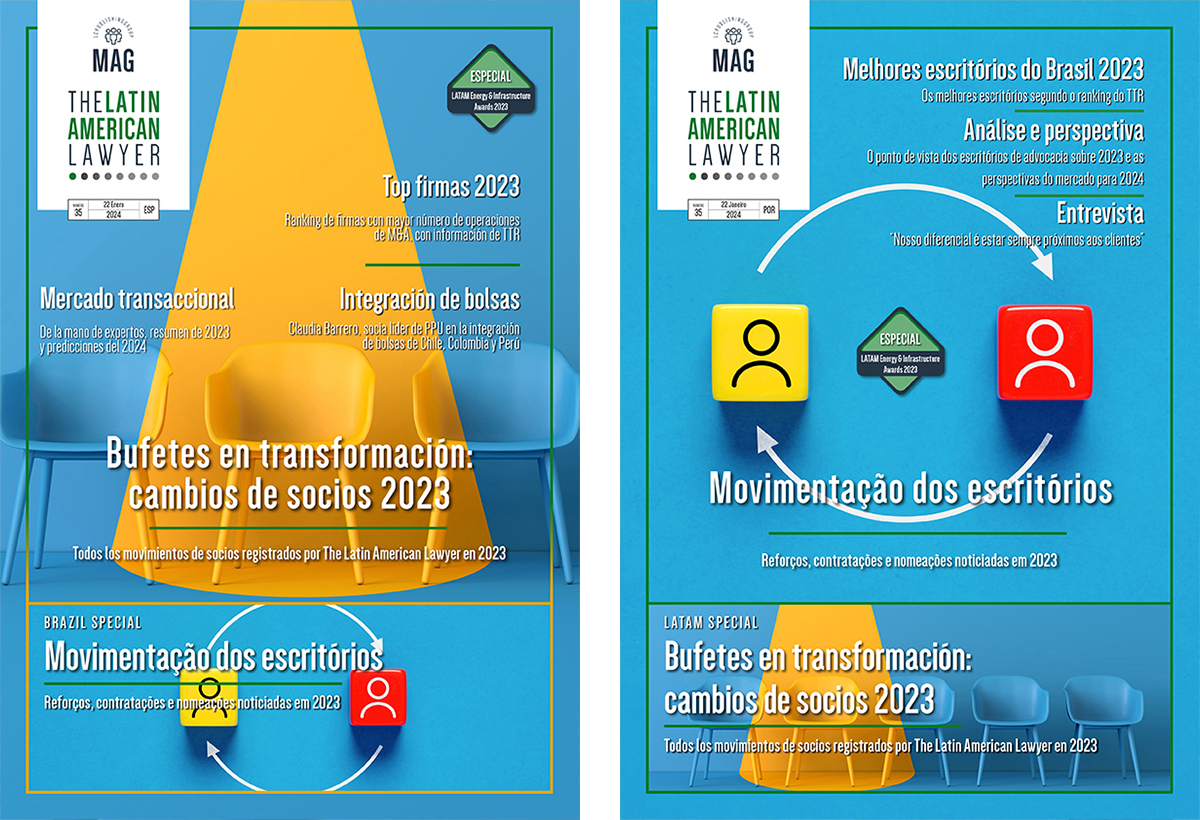Laying the groundwork

TransCanada’s senior legal counsel for Mexico and Latin America, Moisés Hernández, talks about the challenges and complexities of negotiating the legal hurdles for the construction of natural gas pipelines in Mexico.
Mexico’s 2013 energy reform included a major natural gas pipeline expansion plan, with the former administration pledging to invest some $10 billion in building out the national pipeline network, taking advantage of cheap gas from Texas to supply the country’s industries and power generation plants, coupled with a plan to build new plants and convert existing, oilburning plants to natural gas.
TransCanada is among the companies that has muscled in to the country’s midstream sector, having been awarded contracts to build three natural gas pipelines, including the country’s first undersea duct, running from South Texas to Tuxpan, which came into commercial operation in September 2019. The company is also building onshore pipelines connecting Tuxpan to Tula, in Hidalgo state, and to Villa de Reyes, in San Luis Potosí.
“We use external firms when time is of the essence, given that the preparation and analysis of a case can be time consuming, and that would mean our team is neglecting other tasks and responsibilities,” Moisés Hernández (pictured), TransCanada’s senior legal counsel for Mexico and Latin America, says.
However, the process has been complicated with the change of government in Mexico, with state utility CFE, which oversees the contracts for the pipelines’ construction, having sought to enter into arbitration with TransCanada regarding contracts awarded during the previous administration, following the new government’s quibbling regarding such contracts.
INVESTING RESOURCES
“It’s a very complex process in which different arms of Mexico’s government are involved, such as regulatory bodies, the environmental protection agency, and federal, state and municipal governments, as well as private companies, such as the suppliers for the project,” Hernández says. The energy sector is heavily regulated and such projects are also subject to approval from the communities and towns they pass through, he says. “The onshore, Tuxpan-Tula pipeline passes through four states, as does the Tula-Villa de Reyes section, through communally and privately owned lands, and the company has had to negotiate right of way with numerous local groups, and which is a very complex legal process,” he says.
“It’s a process in which the company has to invest a lot of resources, both economic and human, with negotiations at a local level with farmers and landowners, and which include cultural aspects, respecting the uses and customs of indigenous communities, as they have a very deep respect for their lands, and this has given the company a very valuable learning curve,” he says.
“We have an inter-disciplinary team of lawyers and sociologists to explain to the communities the impact the pipeline infrastructure will have. Such projects have an environmental and economic impact, as natural gas is cleaner and cheaper for electricity generation, but such projects also provoke protests, given that not all the affected communities are in agreement with the construction of such infrastructure.
“We don’t try and convince the local communities, but we simply explain both the positive and negative impacts and try to reach an agreement with them, with an ethical and professional approach, and by implementing programs that mitigate the negative impact of such projects,” Hernández says.
“As the in-house legal team, we have a specialised group that attends to the communities and carries out the negotiation, and we formalise the contracts with the local communities, notary publics and the authorities.”
And the in-house team also uses external law firms as counsel, he says.
“We use specialists in certain themes, and we consult with them, but our in-house team also features on-the-ground lawyers, for themes such as land acquisition and permits, as well as external consultants, who also advise us in the US and Canada, and we use local firms of repute in Latin America, leading firms in their respective fields and practices, and which also have an international presence,” he says.
WHEN TIME IS OF THE ESSENCE
“The contract process for external firms is also complex, which requires validation at various levels, and we try to use few external counsel but which are specialised, and which we choose according to their expertise and experience.” The process for choosing law firms is based on requests for proposals, aimed at two or three leading firms, and based on an analysis of those proposals, TransCanada chooses its counsel.
“We use external firms when time is of the essence, given that the preparation and analysis of a case can be time consuming, and that would mean our team is neglecting other tasks and responsibilities,” he says.
“But the external counsel is continually supervised and the final decision is always ours. We work hand-in-hand with them and always seek to listen to an external opinion, because when we are involved in a conflict, an external firm can provide us with a different perspective.” He says it is also useful to listen to external counsel because they may have experience of similar cases, and the company can therefore see how a resolution has been reached in previous, similar cases.
However, TransCanada also has the challenge of being a pioneer, by being the first company to build an undersea pipeline in Mexico, for example. “We consider external counsel as a supplier, but they are also our partners, our allies,” he says. “But there can be risks, such as the divulging of confidential or sensitive information.” He says that another challenge is the proliferation of law firms entering Mexico’s energy sector since the reform, but which do not always have the expertise in the sector that they claim.
“Since the reform a new energy boom has erupted in Mexico, with new companies participating, and many law firms and lawyers have found a niche in this market, but that includes firms that were not experts in the energy sector, and while there is now a greater selection of such firms, few of them have expertise further back than 2013, and there is still much informality regarding legal services in the energy sector in Mexico.”
“There are many US law firms that have merged with Mexican firms, which gave them a big advantage, combining their expertise in the energy sector with the knowledge of local firms, given that the regulations and the contracts concerning the energy reform are different to those we are used to, and it’s important to know how business is done in Mexico, and the kinds of clauses that contracts contain.”
Hernández has the advantage of having studied in the US and worked for multinational companies and law firms, which gives him a global perspective, combined with his experience of the legal framework in Mexico governing the energy sector. “If we look at energy reforms in Mexico, the reform in Mexico was much faster, and there are still many loopholes or gaps in the legislation, and it’s very important to understand that.”














